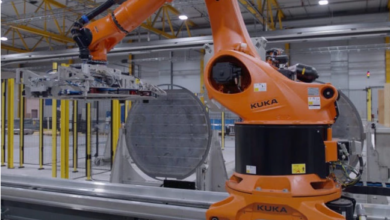Aurora Hydrogen raises $10M for developing hydrogen technology
This funding adds to additional funding by the Natural Sciences and Engineering Research Council of Canada (NSERC) that the team received earlier this year.

Aurora Hydrogen has raised US$10M in Series A funding led by Energy Innovation Capital. Participating investors include Williams, Shell Ventures, Chevron Technology Ventures and the George Kaiser Family Foundation.
Aurora Hydrogen is scaling its proprietary and highly efficient microwave pyrolysis technology to produce hydrogen and solid carbon without generating CO2 emissions or consuming water. Aurora’s technology is highly scalable, with units that can supply a broad range of applications from distributed fueling to hydrogen injection and industrial processes.
Hydrogen production from the Aurora technology can significantly reduce global CO2 emissions by over 900 million tonnes per year. Additionally, Aurora uses 80% less electricity than electrolysis, the conventional method of producing clean hydrogen, requiring far less electrical generation capacity per kg of hydrogen. And, unlike electrolysis, the process does not require water as a feedstock, preserving another critical and scarce resource.
The recent funding will be used to build and operate a 200 kg-H2/day demonstration plant for field trials in Edmonton, Canada. Current hydrogen production is either expensive and distributed or low-cost and centralized, requiring additional costs to transport.
Aurora’s technology has the potential to unlock many new hydrogen markets and applications by providing low-cost hydrogen at the point of use, fast-tracking the path to decarbonization in heavy transportation, residential and commercial heating, and many industrial processes.
Andrew Gillis, CEO of Aurora Hydrogen, said, “At Aurora, we are producing low-cost hydrogen at the point of use, at the exact scale required, and without generating any CO2.”
Christopher Smith, MD of Energy Innovation Capital, said, “Aurora’s novel and thermodynamically sound approach has the opportunity to decarbonize the current carbon-intensive hydrogen industry and lead the commercialization of new low-carbon hydrogen applications.”
